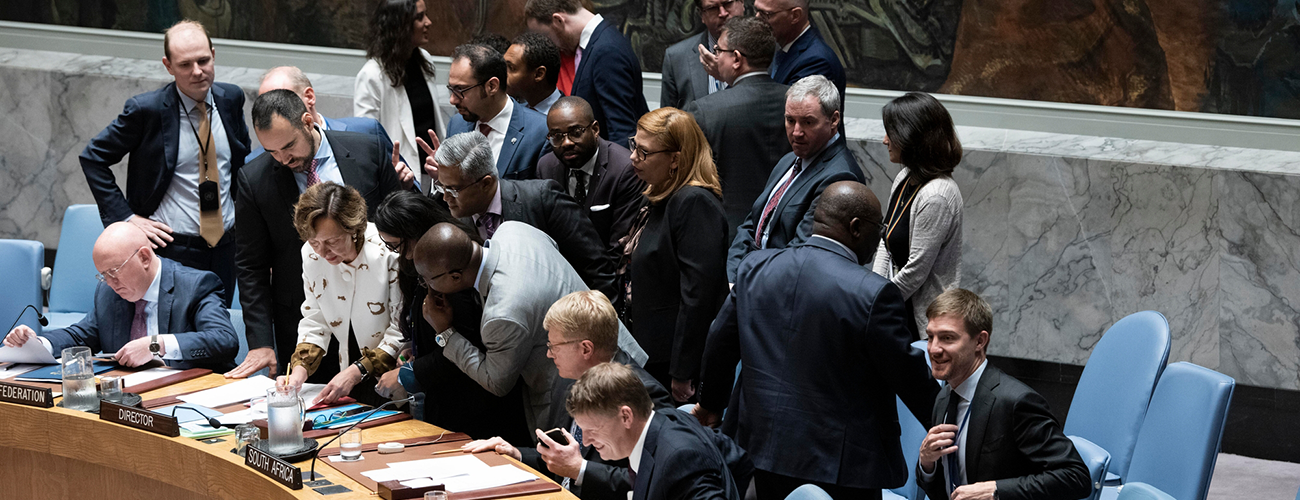Members of delegations discuss as the Security Council prepares to vote during the meeting on the Situation in the Middle East (Syria), September 19, 2019. (UN Photo/Kim Haughton)
In recent years, the ten elected members of the Security Council, now commonly referred to as the E10, have come to play a more prominent role. Although there were previous periods when elected members were active and took initiative, the space for such contributions began to shrink in the mid-2000s. The emergence of the E10 as a construct and a more cohesive coalition on the Security Council is thus recent. Despite elected members’ different levels of commitment to collective E10 initiatives, and although the Council’s five permanent members have greater capacity, permanence, and veto power, there is a sense that the E10 have been able to influence the work of the Council, including its working methods, thematic issues, and some country-specific files.
This paper presents a broad policy perspective on lessons from both individual elected members and from the E10 as a group. It examines the E10’s recent engagement on the Council and offers lessons for how elected members can most effectively prepare for their term, serve on the Council, and ensure their legacy.
The paper concludes with reflections on the future of the E10 in a fragmented Security Council. While the E10 as a group have reached a level of maturity, their ability to coordinate across a diverse group whose effectiveness depends on several internal and external factors may have reached a natural limit. The E10’s composition, individual members’ level of commitment to collective E10 initiatives, and the group’s leadership all impact the E10’s ability to influence the work of the Council. While the E10 have been collectively successful at promoting certain issues and files and at making the Council more transparent, individual members have and will continue to have different views on many issues on the agenda. They will also continue to face structural inequalities when it comes to penholding and chairing subsidiary bodies.








